Customers are expecting seamless, responsive, and personalized support across digital channels. 88% of customers consider a company’s experience as important as its products or services. This highlights how essential it is for businesses to improve their digital customer support.
The consequences of neglecting digital customer service can be severe, with 73% of customers saying they would move to a different company after just one bad experience. Digital customer service platforms offer features to meet these evolving demands and enable companies to provide swift, efficient, and tailored assistance.
In this blog, we will dive into the essentials of digital customer service and explore seven leading digital customer service software.
What is Digital Customer Service?
Digital customer service involves helping customers through various online channels like social media, instant messaging, email, and chat applications. It also includes self-service options like AI chatbots and knowledge bases. This allows companies to provide support at all hours, quickly answer questions, and offer personalized help to more customers.
This helps meet customers where they are and provide assistance through the digital platforms they use daily.
Train your team thoroughly on advanced digital customer service platforms and regularly collect feedback from both agents and customers. Continuously analyze performance metrics to identify areas for improvement and adapt to evolving customer service trends.
Why Brands Need Digital Customer Service Platforms
Digital customer service channels are essential for businesses to meet customers where they are. By offering a variety of digital customer service options, companies can cater to different preferences and ensure that customers prefer their support experience over competitors.
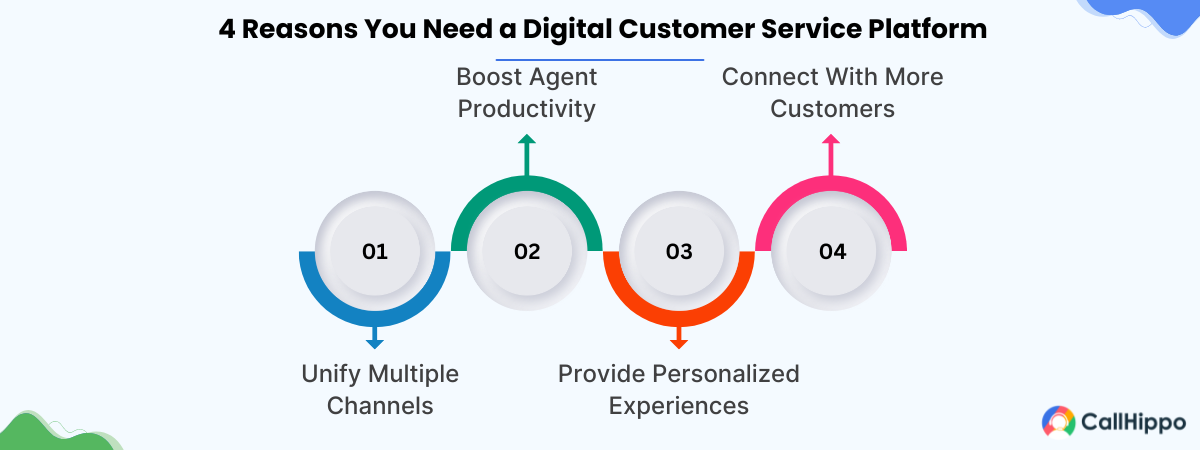
1. Unify Multiple Channels
Digital customer service platforms integrate various communication channels into a single interface, allowing agents to manage interactions from social media, email, chat, calls, and messaging apps in one place.
This unified approach not only ensures consistency in customer interactions across all touchpoints but also reduces customer effort in seeking support. By integrating traditional channels like phone calls with newer digital service options, businesses can provide a seamless experience that caters to all customer preferences.
2. Boost Agent Productivity
These platforms empower support teams with tools that streamline workflows and automate routine tasks. Features like AI-powered routing, pre-written responses, and knowledge base integration allow agents to handle inquiries more efficiently.
Besides, advanced analytics and reporting capabilities help identify trends and areas for improvement, while team collaboration tools ensure seamless handoffs and knowledge sharing among agents. This increased efficiency translates to faster resolution times and higher customer satisfaction.
3. Provide Personalized Experiences
When businesses offer digital customer service that’s tailored to individual needs, they demonstrate a commitment to great customer service. Digital customer service platforms leverage customer data and interaction history to deliver tailored support experiences. Support representatives can view detailed customer information, including purchase history, preferences, and past conversations, to offer tailored solutions.
AI-driven insights can recommend the best actions to take or suggest personalized offers, which makes each interaction more useful and meaningful for the customer. This tailored approach helps build stronger connections with customers and makes them more likely to stay loyal to the brand.
4. Connect With More Customers
Digital customer service fits the modern consumer’s lifestyle by allowing them to seek support at their convenience. This is crucial for businesses looking to expand their reach and improve customer satisfaction.
Besides, when companies provide support through various online channels, they can connect with more people and meet different preferences for communication. Digital platforms enable businesses to be present where their customers are, whether it’s on social media, messaging apps, or through self-service portals.
Types of Digital Customer Service Platforms
To effectively manage online customer service, businesses need to choose the right digital customer service tools. These platforms help the customer support team handle inquiries efficiently across various channels.
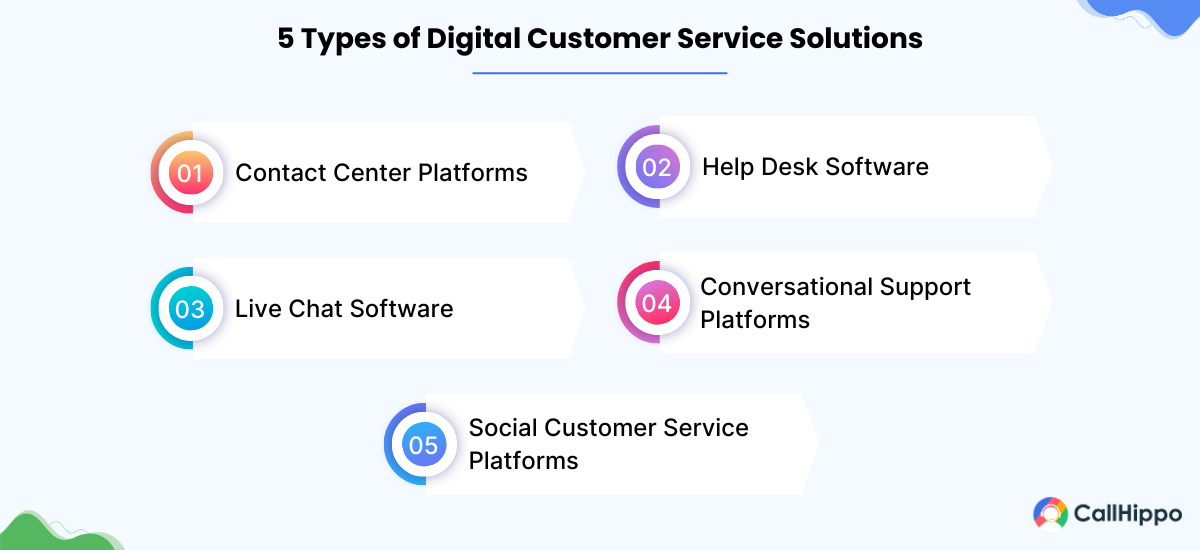
1. Contact Center Platforms
91% of consumers prefer brands that allow them to call or message for support. Contact center software manages both phone and messaging-based customer support efficiently. Call center software typically includes intelligent routing to direct customers to the most appropriate agent, Interactive Voice Response (IVR) systems, and call conferencing features.
They also offer advanced analytics to improve service quality, call recording for training purposes, and real-time dashboards for performance monitoring. This means companies can professionally manage high volumes of customer interactions while also finding ways to make their customer service better over time.
2. Help Desk Software
As customer inquiries become more diverse and complex, organized ticket management is essential for maintaining service quality. Help desk software provides the structure needed to handle these varied requests effectively. They include features like ticket creation, assignment, tracking, and knowledge base management.
Help desk software is particularly useful for companies dealing with complex or technical support requests that often require multiple interactions to resolve. They help businesses organize customer issues, ensure timely responses, and maintain interaction records.
3. Live Chat Software
With customers expecting instant responses, live chat has become a crucial part of customer support. It offers immediate assistance when customers need it most, directly on websites or in mobile apps.
Live chat platforms facilitate real-time text-based communication between customers and support agents. They often include features like customizable chat widgets, visitor tracking, and proactive chat invitations based on user behavior. Many live chat tools now integrate AI-powered chatbots to handle initial inquiries or provide instant responses outside of business hours.
4. Conversational Support Platforms
While chatbots typically rely on predefined rules and scripted responses, these advanced platforms use sophisticated AI and natural language processing to understand and respond to customer queries more intelligently.
These AI-powered systems can comprehend context and intent to provide more nuanced and personalized responses. These systems provide automated responses that sound natural and can handle many different types of questions without needing a human to step in.
5. Social Customer Service Platforms
As social media evolves into a primary channel for customer communication, dedicated platforms for managing these interactions have become essential. Social customer service platforms help businesses navigate the unique challenges of public-facing support.
They provide features such as real-time social media monitoring, sentiment analysis, and multi-platform response capabilities. Moreover, these platforms enable companies to track brand sentiment across social channels and offer valuable insights into customer perceptions.
When to Adopt a Digital Customer Service Platform?
Choosing a digital customer service platform is important as it can greatly improve customer support and make operations more efficient. Here are signs your business needs a digital customer service solution.
- The support team consistently struggles to manage ticket volume
- Lack of a centralized system for tracking key performance metrics
- Information silos causing inefficiencies in customer service delivery
- Manual processes are becoming unsustainable with the growing customer base
- The cost per support ticket or interaction is increasing
- Customer churn is increasing and attributable to service issues
- Scaling support operations to match business growth becomes difficult
Top 7 Digital Customer Service Platforms
While there are hundreds of digital customer service solutions available, we’ve handpicked these seven. We’ve chosen them based on features, user reviews, customer support, and value for money. Compare the solutions to choose the right one for your business.
1. CallHippo
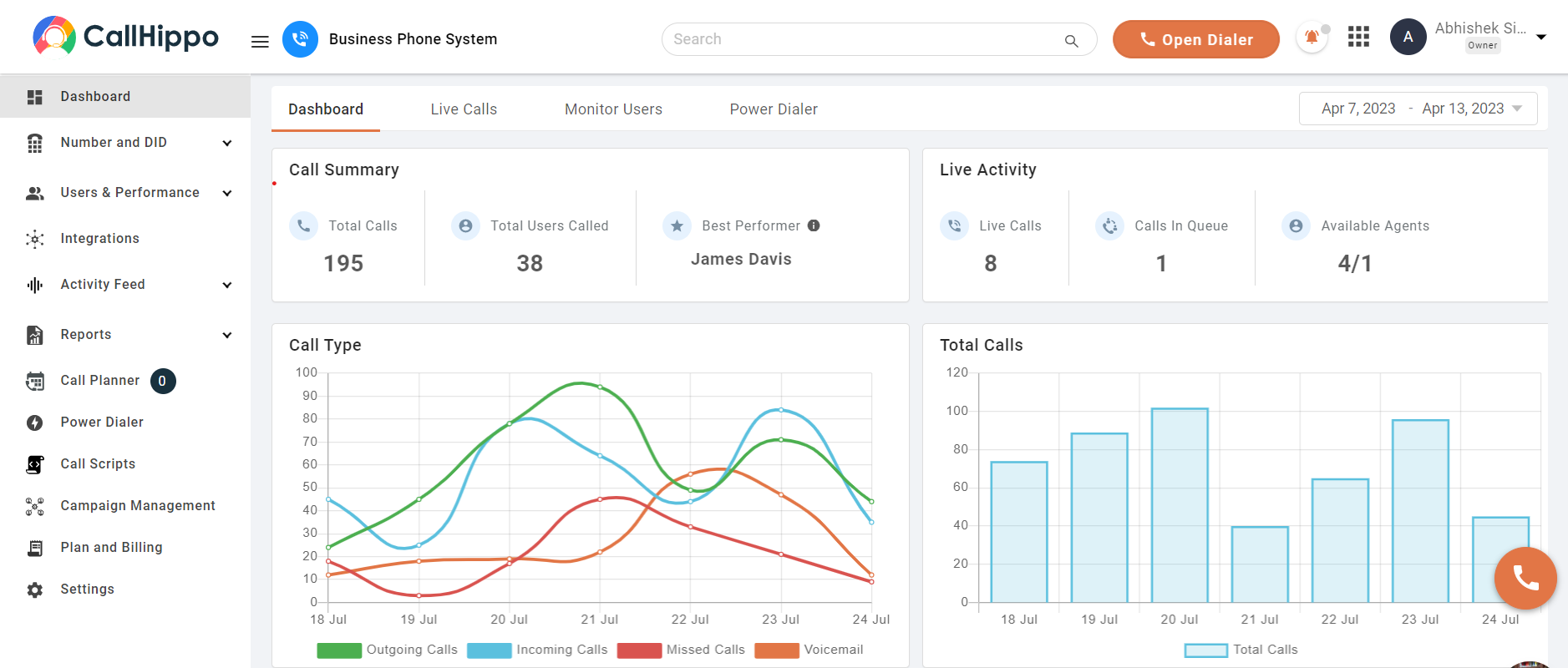
CallHippo is a cloud-based virtual phone system designed for businesses seeking to establish a global presence without physical offices. It offers virtual phone numbers from multiple countries, enabling companies to manage international communications efficiently.
CallHippo integrates with various CRM tools and provides analytics for better insights into call performance. While primarily focused on voice communications, it serves as a valuable tool for businesses looking to enhance their customer service capabilities across borders.
Features
- Free phone number
- Text messages
- Call forwarding
- Click to dial
- AI global connect
- Leaderboard
- Manage agent availability
Pros
- The virtual phone system allows businesses to establish a global presence cost-effectively.
- It integrates with 100+ tools, which enhances customer data management and insights.
- CallHippo’s Leaderboard feature turns performance into a friendly competition to encourage agents.
Cons
- The platform primarily focuses on voice communication, which limits omnichannel support options.
- CallHippo’s mobile app functionality is sometimes reported as less robust than desktop.
Pricing
- Starter: $18/user/month
- Professional: $30/user/month
- Ultimate: $42/user/month
*Pricing as of 18-09-2024.
2. Freshdesk
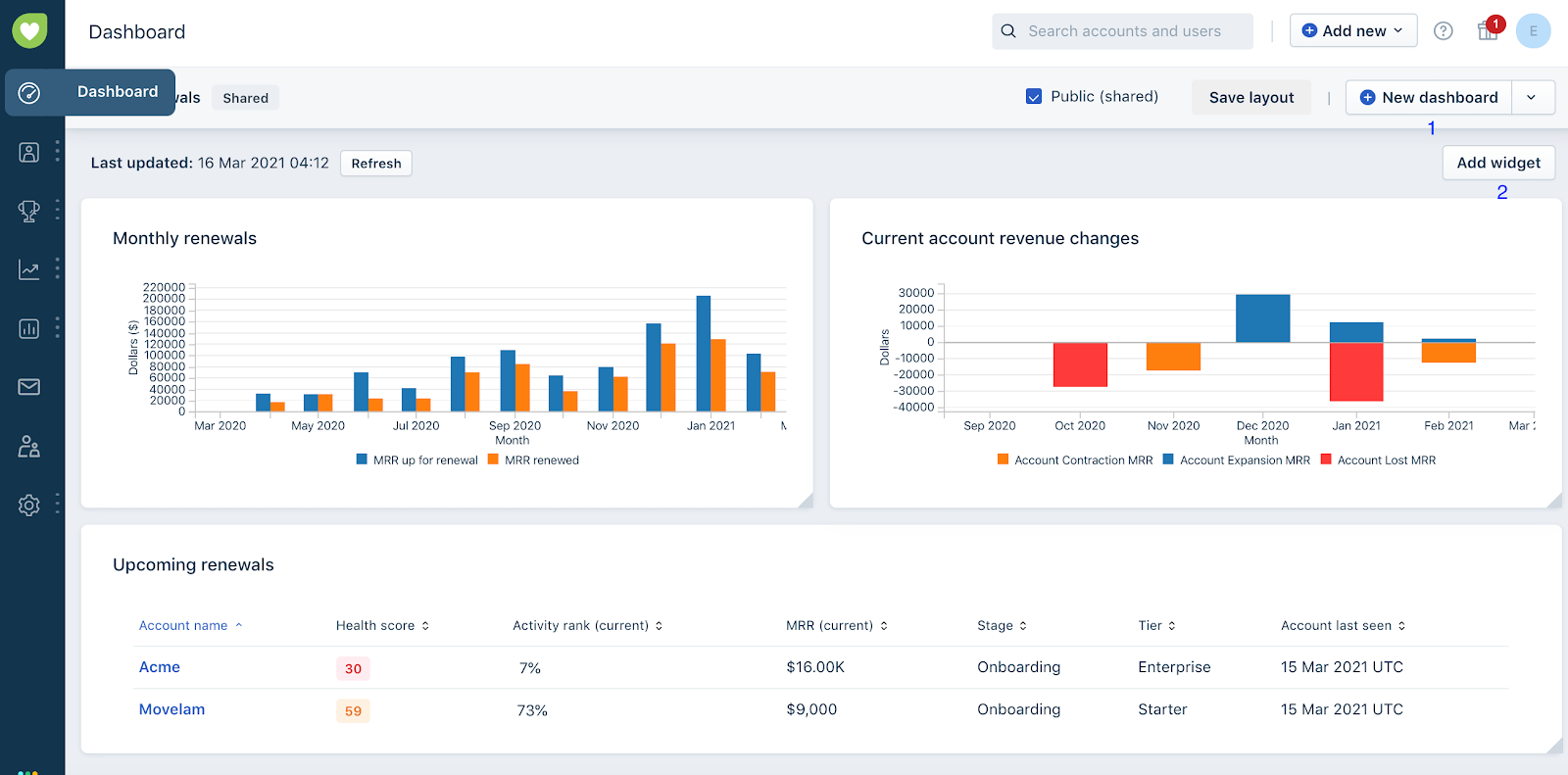
Freshdesk is a comprehensive customer support software that unifies conversations from email, phone, web, chat, and social media. It offers a ticketing system that helps prioritize and categorize customer issues efficiently.
Its AI-powered chatbot, Freddy AI, can answer simple questions from customers and send more complex issues to human support agents. Freshdesk also allows companies to offer consistent support across different communication channels.
Features
- Ticketing
- Shared inbox
- Threads and tasks
- Analytics and reporting
- Knowledge base
- Multilingual translations
Pros
- The omnichannel approach unifies customer interactions from multiple platforms in one place.
- Freshdesk’s AI-powered chatbot, Freddy AI, effectively handles initial customer inquiries automatically.
- The ticketing system efficiently organizes and prioritizes customer issues for quicker resolution.
Cons
- Some users find the reporting and analytics features less flexible than desired.
- The platform’s customization options can be limited for businesses with unique workflows.
Pricing
- Free: $0/month
- Growth: $15/agent/month
- Pro: $49/agent/month
- Enterprise: $79/agent/month
*Pricing as of 18-09-2024.
3. Talkdesk
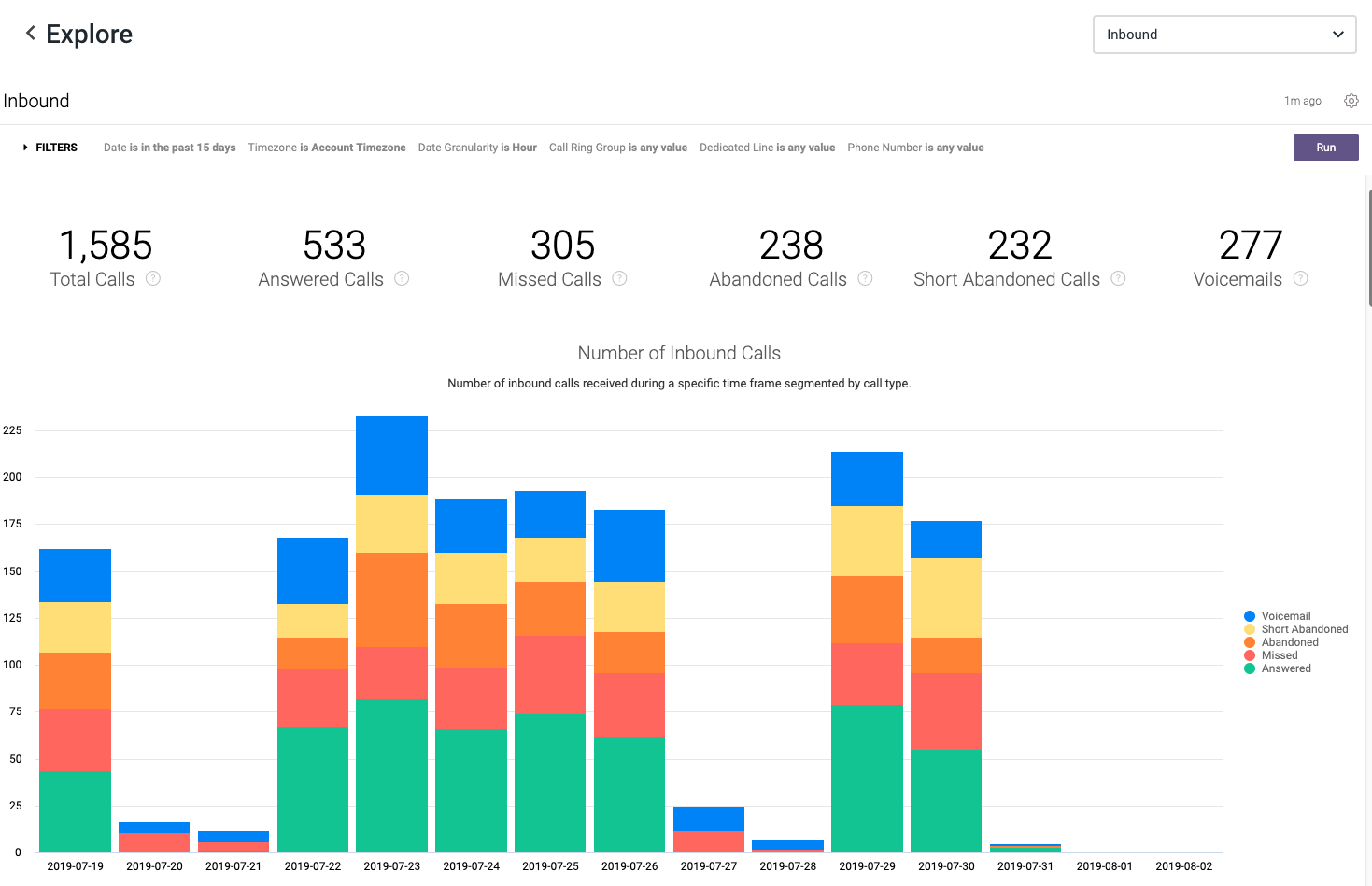
Talkdesk is an enterprise cloud contact center platform that combines artificial intelligence with human touch to deliver exceptional customer experiences. It offers voice, digital, and workforce engagement management solutions.
It also provides tools for quality management, workforce management, and outbound dialing campaigns. Besides, its easy integration with CRM systems and other business tools makes it a powerful solution for large-scale customer service operations.
Features
- Digital engagement (email, chat, SMS, and social messaging)
- Studio and routing
- API access
- Real-time dashboards
- Business intelligence
- Automated notifications
Pros
- Talkdesk’s AI-driven tools provide real-time assistance to agents during customer interactions.
- The platform offers extensive customization options to fit specific business needs.
- Talkdesk’s workforce management features help optimize staffing and improve efficiency.
Cons
- Certain advanced features may require additional training for staff to use effectively.
- Users occasionally experience delays in real-time data updates on dashboards and reports.
Pricing
- CX Cloud Digital Solutions: $85/user/month
- CX Cloud Essentials: $85/user/month
- CX Cloud Elevate: $115/user/month
- CX Cloud Elite: $145/user/month
*Pricing as of 18-09-2024.
4. Zendesk
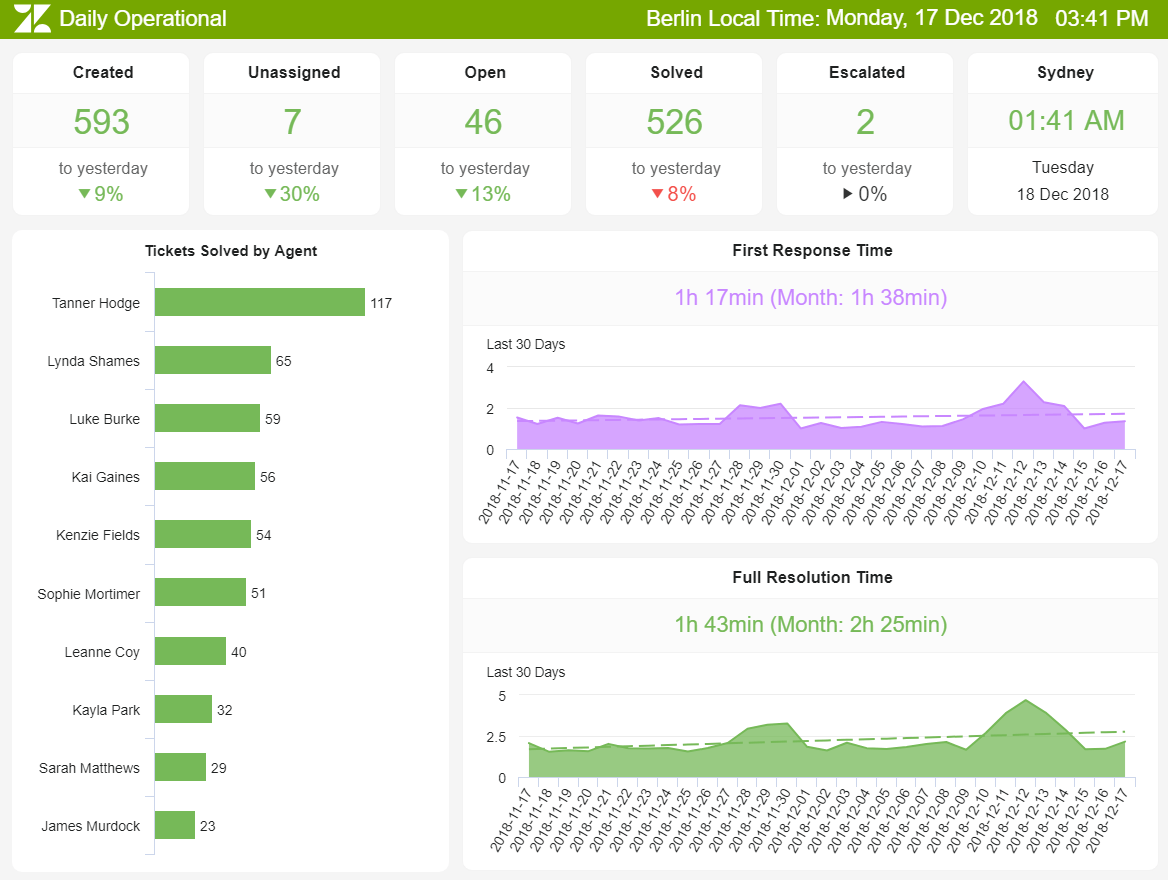
Zendesk is a flexible customer support system that combines tools for helping customers, making sales, and keeping customers engaged. It lets businesses communicate with customers through email, chat, phone calls, and social media all in one place. Zendesk’s ticketing system helps organize and prioritize customer inquiries efficiently. It also offers a customizable help center for self-service, AI-powered bot assistance, and robust reporting and analytics features.
Features
- Ticketing system
- Email, chat, voice, social messaging and more
- Help centre
- Prebuilt analytics dashboards
- 1,000+ apps and integrations
- Pre-defined responses (macros)
- Custom business rules (triggers and automations)
Pros
- Zendesk’s extensive app marketplace allows for easy integration with numerous third-party tools.
- Zendesk’s customizable help center enables businesses to create comprehensive self-service resources.
- The software offers robust automation capabilities to streamline repetitive support tasks.
Cons
- Certain advanced reporting features require higher-tier plans, which can increase costs.
- There could be inconsistencies in search functionality across different parts of the platform.
Pricing
- Suite Team: $55/user/month
- Suite Growth: $89/user/month
- Suite Professional: $115/user/month
*Pricing as of 18-09-2024.
5. Genesys
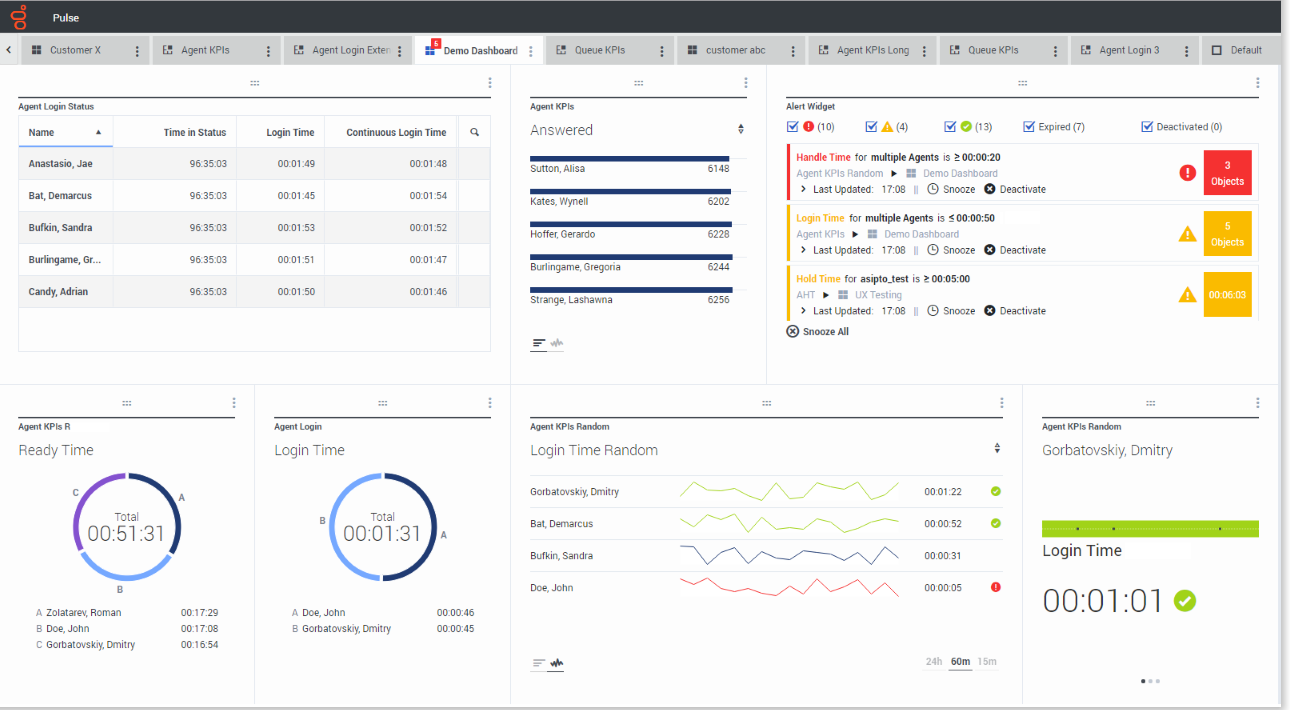
Genesys is an all-in-one customer experience platform that combines digital, voice, and artificial intelligence capabilities. It offers cloud and on-premises solutions for contact centers, enabling businesses to provide personalized experiences across various channels.
The platform’s AI capabilities help automate interactions, provide real-time agent assistance, and offer deep customer insights. Genesys is particularly well-suited for large enterprises looking for a comprehensive solution for managing complex customer interactions.
Features
- Voice channel
- Digital channels
- Call routing
- Speech-enabled IVR
- Omnichannel routing
- Analytics and reporting
- Quality assurance and compliance
Pros
- Genesys’s AI capabilities provide personalized customer experiences across multiple channels.
- Its voice biometrics feature enhances security and streamlines customer authentication processes.
- The platform includes powerful analytics tools for real-time monitoring and historical reporting.
Cons
- The initial setup and configuration process can be time-consuming.
- The software’s extensive feature set may require ongoing training to ensure full utilization.
Pricing
- Genesys Cloud CX 1: $75/user/month
- Genesys Cloud CX 2: $115/user/month
- Genesys Cloud CX 3: $155/user/month
*Pricing as of 18-09-2024.
6. NICE
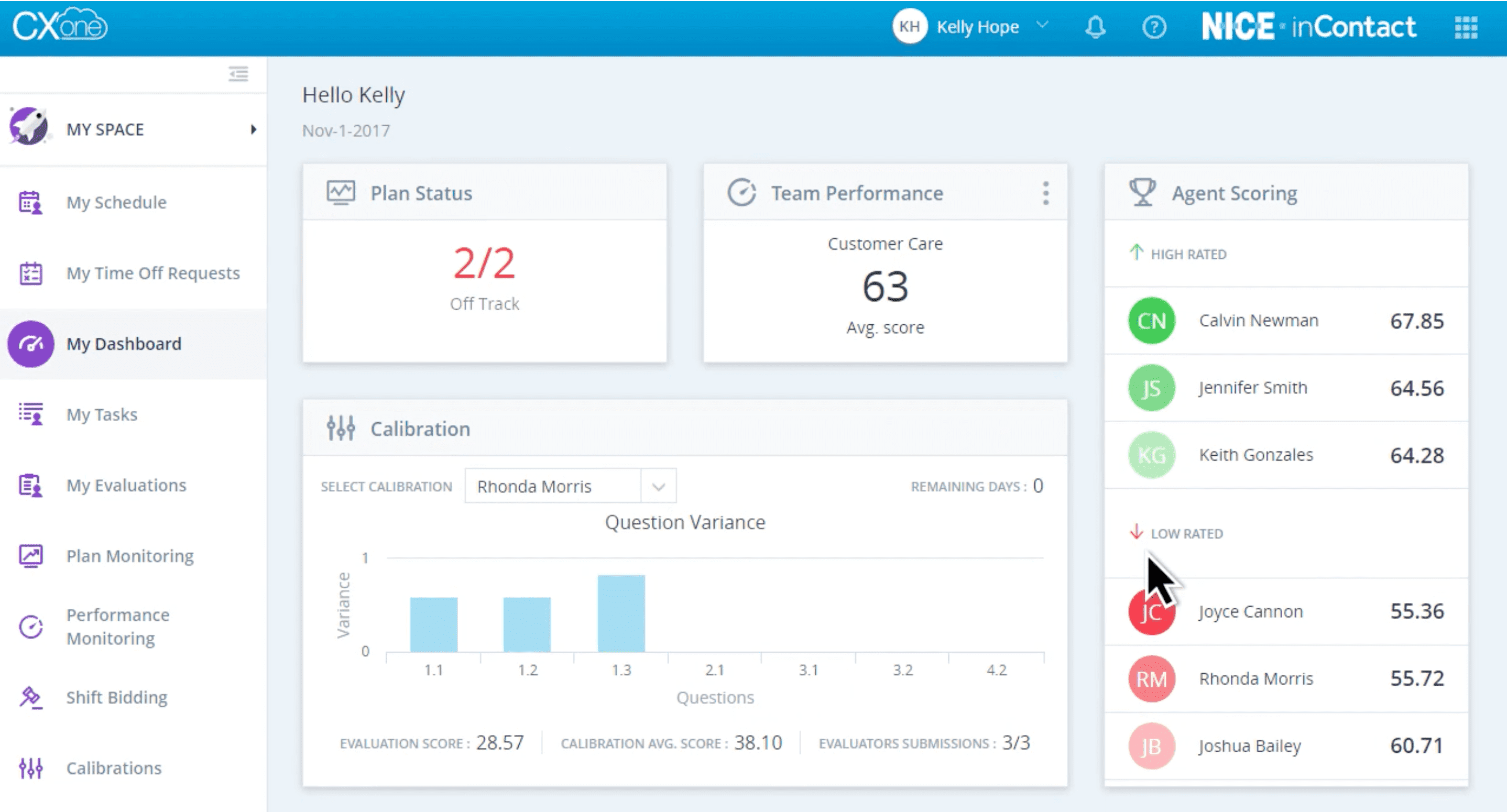
NICE (Neptune Intelligence Computer Engineering) offers a range of customer experience solutions, with NICE inContact CXone as its flagship cloud contact center platform. NICE provides tools for omnichannel routing, workforce optimization, analytics, automation, and artificial intelligence. NICE also includes advanced analytics capabilities, including interaction analytics and real-time guidance for agents.
Features
- Digital Agent routing
- Dedicated agent and supervisor workspace
- Omnichannel blended routing
- Concurrent interaction handling?
- Self-Service via voice IVR
- Voice recording
Pros
- NICE’s advanced analytics provide deep insights into customer interactions and agent performance.
- The platform offers robust compliance and security features for highly regulated industries.
- The software provides extensive customization options to meet specific business requirements.
Cons
- Frequent system updates can disrupt workflows temporarily.
- Integrating NICE with legacy systems can be challenging.
Pricing
- Digital Agent: $71/month
- Voice Agent: $94/month
- Omnichannel Agent: $110/month
*Pricing as of 18-09-2024.
7. Zoho Desk
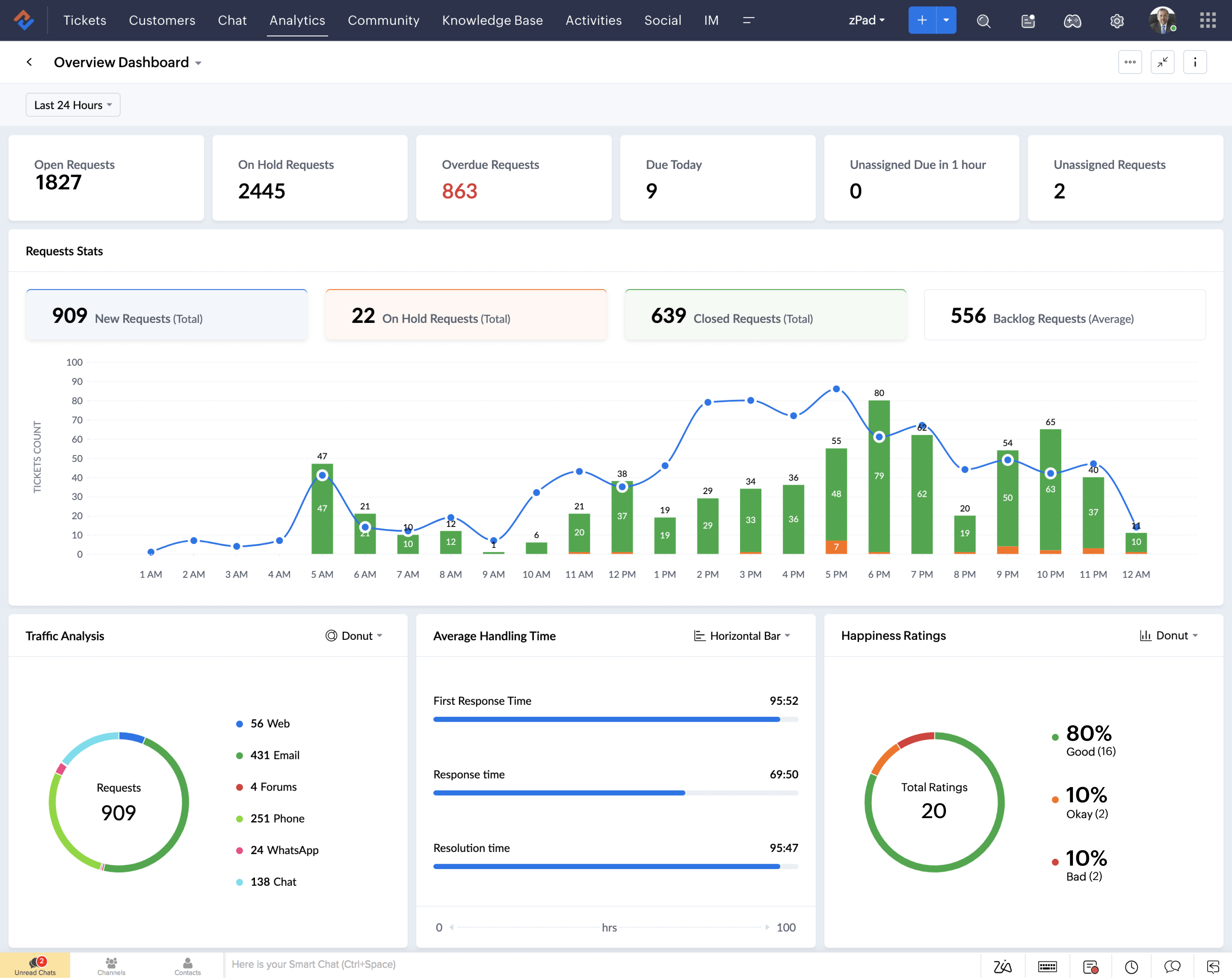
Zoho Desk is a context-aware help desk software that helps businesses offer multichannel support. It organizes customer service interactions from email, phone, chat, social media, and website into a unified interface. Its AI-powered assistant, Zia, helps agents resolve tickets faster by suggesting similar tickets and articles. The platform also provides team collaboration tools and detailed reporting capabilities.
Features
- Email channel
- Help center
- Social media (Facebook and Twitter)
- Ticket history
- Suggested articles
- Faster response snippets
Pros
- Zoho Desk’s context-aware helpdesk provides agents with relevant customer information during interactions.
- The platform’s AI assistant, Zia, helps agents find solutions quickly by suggesting similar tickets.
- Zoho Desk offers seamless integration with other Zoho products for a unified business ecosystem.
Cons
- Reporting features could be more flexible for complex data analysis.
- The platform’s mobile app functionality is sometimes reported as less comprehensive than the desktop version.
Pricing
- Standard: $10/user/month
- Professional: $10/user/month
- Enterprise: $10/user/month
*Pricing as of 18-09-2024.
Why is CallHippo the Best Digital Customer Service Platform for Contact Centers?
Digital customer service platforms are essential for businesses aiming to meet modern customer expectations. Using the right digital customer service tools can greatly boost customer happiness, keep customers coming back, and help the business perform better overall.
CallHippo is a popular digital customer service platform for contact centers looking to provide consistent, personalized experiences. Its Website Call Back Button allows you to collect call-back requests from customers, which can reduce wait times and enhance customer satisfaction.
For teams handling complex inquiries, CallHippo’s call whisper function allows supervisors to guide agents during live calls without interrupting the customer. The platform’s advanced call analytics go beyond basic metrics. They provide insights into customer sentiment and conversation quality, helping businesses improve their service strategies.
CallHippo also ensures call continuity by seamlessly switching between providers to ensure high-quality audio in real time. For businesses that need to scale their operations, CallHippo offers flexible plans and easy integration with popular CRM systems. It is an innovative solution that allows companies to adapt their customer service capabilities as they grow without the need for major system overhauls.
FAQs
1. What is the role of digital services?
Digital services streamline customer interactions through online platforms and provide support. They enhance efficiency, improve customer experiences, and offer 24/7 accessibility for businesses and customers alike using chatbots, self-service portals, and social media.
2. What skills do you need for digital customer service?
Key skills for digital customer service include communication, problem-solving, and technical proficiency. Agents must be adept at navigating digital tools, understanding customer needs, and providing clear, empathetic responses.
3. What is an example of digital customer service?
An example of digital customer service is a live chat system on a company’s website. Customers can instantly connect with support agents to resolve issues, ask questions, or get product recommendations, all through an easy-to-use, real-time messaging platform.

Subscribe to our newsletter & never miss our latest news and promotions.









